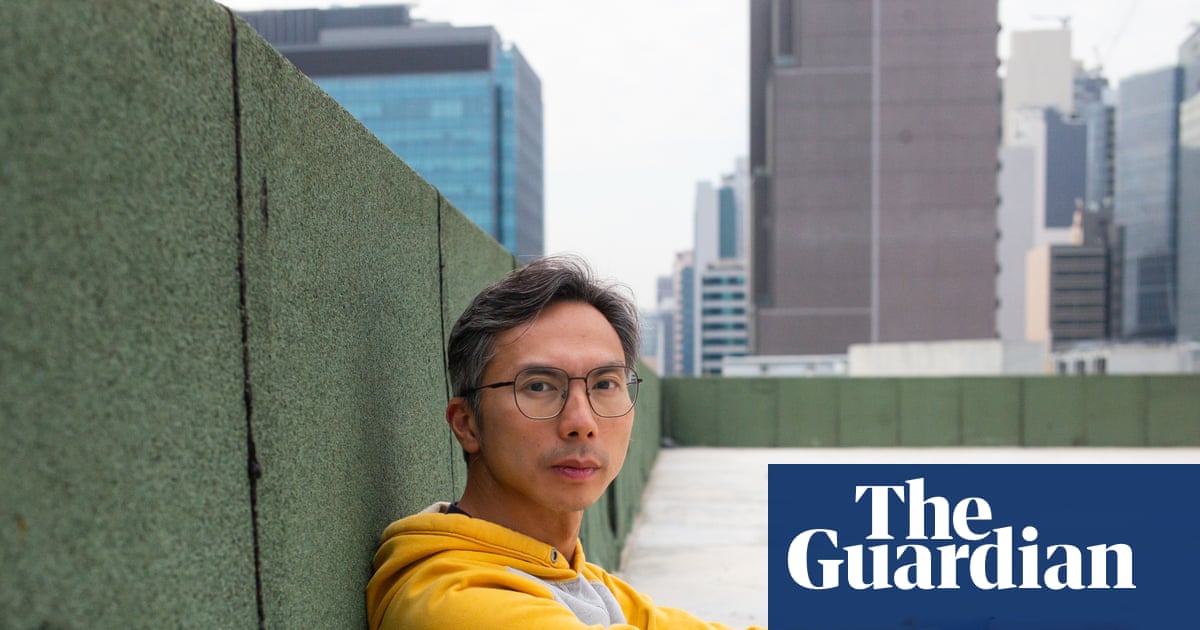I grew up in a house where nothing German was allowed. No Siemens dishwasher or Krups coffee machine in the kitchen, no Volkswagen, Audi or Mercedes in the driveway. The edict came from my mother. She was not a Holocaust survivor, though she had felt the breath of the Shoah on her neck. She was just eight years old on 27 March 1945, when her own mother was killed by the last German V-2 rocket of the war to fall on London, a bomb that flattened a corner of the East End, killing 134 people, almost all of them Jews. One way or another, the blast radius of that explosion would encompass the rest of my mother’s life and much of mine.
Of course, she knew that the bomb that fell on Hughes Mansions had not picked out that particular building deliberately. But given that the Nazis were bent on eliminating the Jews of Europe, she also knew how delighted they would have been by the target that fate, or luck, had chosen for that last V-2, how pleased that at 21 minutes past seven on that March morning it had added 120 more to the tally of dead Jews that would, in the end, number 6 million. And so came the rule. No trace of Germany would be allowed to touch our family: no visits, no holidays, no contact. The Germans were a guilty nation, every last one of them implicated in the wickedest crime of the 20th century.
There were other Jews I knew whose parents followed the same prohibition, but few were as strict on the matter as my mother. And yet, though her practice was unusual, her underlying thinking was not. Far beyond the Jewish community, many shared, and perhaps still share, the assumption that I was raised on: that, with just a handful of exceptions, Adolf Hitler found a universally willing accomplice in the German nation.
We know of the French resistance and of underground movements across Europe, but tend to hear little about opposition in Germany itself. If we think about it at all, many of us assume the dissidents were entirely swept away and rounded up as soon as the Nazis took power in 1933: First they came for the communists …
And yet that’s not quite right. There were Germans who defied the Third Reich from the very start and throughout the Nazi dictatorship. In the immediate aftermath of the war, one allied investigator estimated that, during the 12 long years of national socialism, 3 million Germans had been in and out of prisons or concentration camps for crimes of dissent, sometimes punished for nothing more than a critical remark.
There were 67.7 million German citizens in 1933, which means the vast, overwhelming majority, more than 95%, if you include children, did as they were told. They raised their right arm in salute and said “Heil Hitler!”. But quite a few did not.
What does it take to step out of line like that? What makes one person refuse when everyone around them obeys? And what compels them to do it when it would be so much easier to do nothing, when breaking ranks can only bring pain, hardship or death?
Anyone who has stared hard into the abyss of the mid-20th century has surely asked themselves versions of those questions, and one question above all: what would I have done? Most of us like to think we would have been one of the rebels or refusers, that we would have been brave. But the statistics suggest that most of us would not. Almost all of us would have stayed silent.
More than three years ago, I stumbled across the story of a group drawn from the upper reaches of Berlin high society, each one of whom fell into that rarer category: they refused to bend the knee to Hitler, choosing to stand up to him instead. It had its share of terrible cruelty, of course, but their story – which, save by a few experts, had been almost entirely forgotten – had at its centre something just as inexplicable: radical, unnecessary, mortally dangerous good.
There was also a twist. Those remarkable individuals mostly defied the regime separately, in acts of rescue and resistance that were secret and undiscussed. But on one fateful, and fatal, day they came together.
Officially, it was for a tea party, celebrating the birthday of a friend. In fact, they would trade nuggets of forbidden information, sharing whispered plans, plotting for a future freed from the Führer’s rule. They basked in the camaraderie of that afternoon, in the relief that they were not on their own. But that gathering would prove to be their undoing, thanks to a threat none of them had seen – a threat from within.
How did they come to be there that day? How did a handful of the Berlin elite, more used to nights at the opera and embassy parties, find themselves engulfed in a drama that would soon turn deadly and whose impact would be felt at the very top of the Nazi state? How did those who could so easily have kept their heads down and stayed out of trouble, come to risk everything?
The path to their rebellion was not smooth or straight. Each one came to their decision via a different, often roundabout route. For some it was not even a decision; rather the only possible response to the questions raised by the darkening world around them. Those questions pressed with a particular intensity in the Germany of the 1930s and 1940s. But they are not only of that time or that place. Some of them echo down the decades. Some of them reverberate especially loudly at this very moment.
To get a sense of the remarkable men and women who made up this group, it’s worth starting with Maria Helene Françoise Izabel von Maltzan, Baroness of Wartenberg and Penzlin – and the day in the autumn of 1943 when the Gestapo came to call.
Maria was a young woman, only 34 years old, and now there were armed men crawling over every inch of her home, searching for the Jew, or Jews, they were sure had found refuge there. As it happens, there was a Jew in the very room where Maria stood, hidden and holding his breath – but still she would not allow herself to show even a hint of fear. She had learned one crucial lesson from her multiple previous encounters with the secret state police: confidence was all. The trick was to convey unwavering self-belief.
The Jew in question was her lover, Hans Hirschel, and they had long prepared for this moment. When he moved in, more than 18 months earlier, he brought with him a sofa bed crafted from heavy mahogany, with a base large enough for a person to lie in. Once the cushions were on, you couldn’t even see the opening. Maria added a series of hooks and eyelets, so that whoever was concealed within could lock the box from the inside. Once that was done, it was impossible to open from the outside.
Hans had raised the obvious objection: surely he would suffocate in there. So Maria had taken a hand drill and made several air holes, covering them from the inside with cloth in a shade of red to match the sofa. Each day, she would ensure there was a glass of water inside – and enough codeine to suppress the persistent cough that might give Hans away. The bed box stood ready at all times, his hideaway in case of emergency.
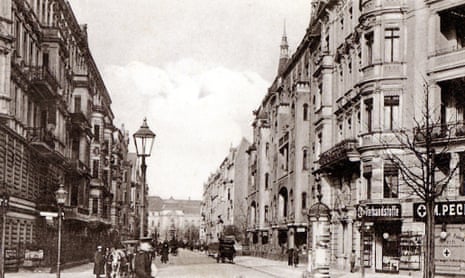
Now the emergency was upon them and Hans was inside, doing his best to make no sound as the two Gestapo men turned the apartment upside down.
He could hear them. A warning had come a few hours earlier. The woman who served as concierge of the building had passed Maria a yellow index card that had been dropped in the hallway. Just five words, one of them not even really a word, but enough to constitute a death sentence.
At Maltzan’s there are ‘J’!
It was a denunciation of the kind that was not rare in the Berlin of that period, as one neighbour accused another of secretly sheltering Jews. Prying eyes were everywhere, on the lookout for any sign of an Aryan with a secret in the attic or basement. The accused would sometimes turn accuser, to divert suspicion and ingratiate themselves with the secret police. That, Hans and Maria felt sure, is what had happened here. The woman who wrote that note, apparently mislaid by an investigating Gestapo officer, had earlier had the finger of suspicion pointed at her. So the knock on the door, when it came, was not a surprise.
Maria opened up to find two men who demanded to be let in. She stalled them just long enough for Hans to retreat to the bedroom and, without making a sound, clamber into the hollow under the mattress and lie flat. That was at half past two in the afternoon. The Gestapo agents wasted no time, pulling out every drawer, tearing open every cupboard. Before long they found a row of suits, clearly belonging to a man. They confronted her with them.
Maria told the truth. That she had given birth to a baby boy the previous September and “I can assure you, he was not born of the Holy Spirit”. Only then did she lie, naming the father not as Hans, but as Eric Svensson, a homosexual friend who had posed as her lover. The search of the apartment continued.
Lying in the box, Hans could hear the sound of feet scurrying across the floorboards. Maria was throwing a ball for her two dogs. Audibly irritated, the Gestapo men asked her to stop, but she refused. This was the hour when the animals were used to their afternoon walk, she explained. They had to be exercised.
As 3 o’clock passed, then four, they kept up their fusillade of questions.
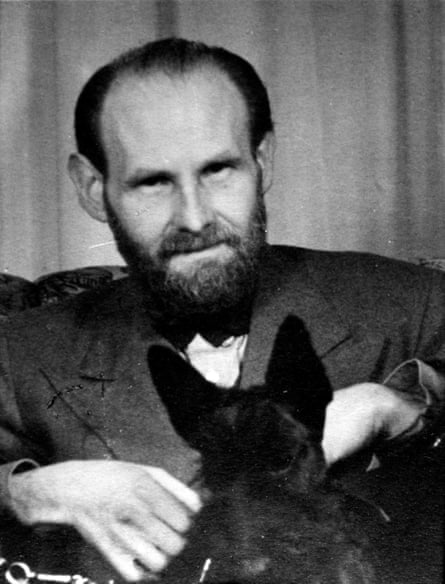
“We know that a Jewish girl used your apartment for two weeks,” they said. (Those prying eyes had missed nothing.)
“It’s true that I employed a girl, but she wasn’t Jewish,” Maria replied. “The papers were absolutely in order.”
“No, they were fake,” said one of the Gestapo men.
Maria asked how she, a mere veterinary student, could possibly know of such things. Indeed, she seemed shocked at the very idea.
By now, they were in the bedroom. Hans could hear the three voices as the formal interrogation began. The men told Maria to sit. She lowered herself on to the sofa bed.
“We know you are harbouring Jews,” they said.
“That’s completely ridiculous,” replied Maria, with all the hauteur she could muster. Inches below her, Hans Hirschel lay motionless.
The countess was gesturing towards the portrait of her father, an aristocrat in dress uniform, that held pride of place in that room. “You don’t believe that I, as this man’s daughter, am hiding Jews.”
Hans stayed rigid, listening to every word. Now came the moment he dreaded.
The Gestapo men insisted that Maria open up the two sofa beds that were in that room. Hans could hear as she opened the first easily, doubtless revealing the empty space within with a flourish that confirmed the agents were wasting their time.
They turned to the second. His one. He could feel movement, the effort to lift the lid.
“Sorry, it won’t open,” Maria was saying. She explained that soon after she bought it, she had tried, but without success. It could not be done. The men were not persuaded. They were tugging at it, determined to prise the opening apart.
And now Maria took a gamble, one that required iron self-confidence. Hans heard the words she used but could let out no gasp as she made her suggestion to the Gestapo.
“Take out your gun and shoot through the couch.”
She seemed deadly serious. As if she were not setting a dare so much as offering a reasonable solution to the standoff. “If you don’t believe me, all you have to do is take out your gun and shoot through the couch.”
How long did Hans lie there, waiting for the Nazis’ response? How long did Maria’s words hang in the air as he braced himself? It would have taken only a second for one of the men to pull out a pistol and call this imperious woman’s bluff. If they did, how long would it take for Hans to die? A few seconds? A minute?
Was one of them even now training his weapon on the bed box? The barrel would be just inches away. And then Maria spoke again.
“However,” she said. She had one condition. If they went ahead and opened fire, “I insist that you give me a credit note for new upholstery fabric, and that you pay the repair costs”. She was adamant that there was no room for “a raggedy piece of furniture” in any home of hers. “And I would like to have that in writing from you. In advance.”
It seemed that, after nearly a decade of dealing with the national socialist masters of the new Reich, and indeed with bureaucrats of every stripe, Maria had learned one more thing: that such men feared straying beyond their authority. There would be an expenses form to fill in, a superior who would demand an explanation. Sure enough, the bullets remained in their chambers.
after newsletter promotion
By 6 o’clock the Gestapo agents had finally left. They had spent the best part of four hours in the apartment and come away with nothing, save a promise that if the Jewish girl reappeared the countess would report her to the authorities immediately.
Only once Maria was sure the two men were gone and would not be coming back did she dare give the signal for Hans to unseal his tomb and emerge. He came out deathly white, his body clammy with sweat. He had believed those long hours might be his last. What saved him was the swagger, the ingrained self-belief, of the woman he called Maruska, a woman whose blood was so blue she had grown up in an actual castle. These days she was a trainee vet living in an abandoned shop in Berlin, but she was of a class that had spent centuries ruling this land. Not even the Gestapo could intimidate her. For now, at least.
Otto Kiep’s diary was always packed. This was less a reflection of his social charms, or even those of his young wife, than of the post he held. He was Germany’s consul-general in New York and every day brought an avalanche of invitations. Even so, this one stood out. It was for a dinner in honour of one of the world’s most admired men: Prof Albert Einstein.
It was scheduled for mid-March 1933, but the planning had been going on for months, starting well before the Nazis had seized power at the end of January. When the organisers first drew up the invitation list, it had been no more than simple courtesy to include Germany’s official representative in New York. After all, Einstein was among the country’s most distinguished figures. But by the time Otto Kiep stared at the invitation on his desk, it had acquired an entirely new meaning.
For Einstein was now a symbol as well as a man. He was a Jew from a country that had turned on its Jews. A dinner in his honour would, inevitably, be a rally in solidarity with the beleaguered Jews of Germany and a protest against the new Nazi government that was persecuting them. If Otto attended, he would be standing with those protesters. In the eyes of his superiors in the foreign ministry, he would be siding with the enemy. He would be a traitor.
And yet, if he were to refuse the invitation, he would be tacitly endorsing those who were hounding Einstein, both back home and here in New York. Otto had been told of an assassination plot against the scientist: a group of German exchange students at Columbia University were planning to attack and kill Einstein just before he boarded the ship that would take him back to Europe.
As the situation grew more tense, it also became clearer, to Otto at least. To attend the dinner was to terminate his career in the foreign service. To say no was to become a servant of national socialism and the thuggery of its supporters. That was the choice.
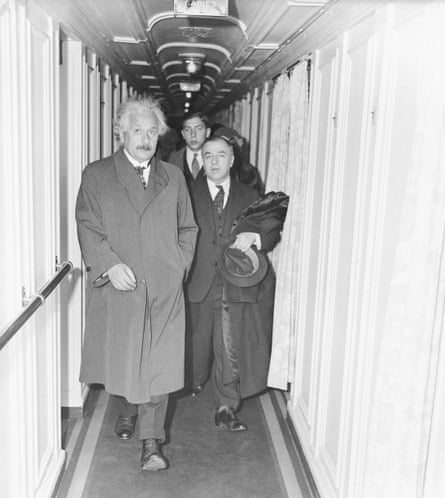
It was now 16 March and Einstein had arrived in the city. Mobbed by reporters, he praised “Germany’s contribution to the culture of mankind” as “so vital and significant that you cannot imagine the world without it” – which made it all the sadder that now “the genuine exponents of this culture are receiving unworthy treatment in their own country”. If there had been any ambiguity over what a public embrace for Einstein from a German official would mean, a small grey area in which Otto might have found diplomatic refuge, it was now gone. He had to make a decision.
He resolved to do what he believed was best for the country he served and loved. For the sake of Germany’s good name, and in the name of German decency, he wrote to the organisers to accept their invitation. They replied by asking him to make a speech.
There was no dilemma this time. In making their request, the hosts had only followed protocol. He would be the highest-ranking German official present; of course they would want him to make a speech. Besides, he could see no point in half measures. If he was going to risk his career, he might as well do it with his head held high, loudly and publicly. He began work on a short text.
The dinner was exactly what he would have expected of a gala night in Manhattan. Inside the Waldorf Astoria hotel on Park Avenue, the ladies wore gowns, the men white tie and tails, while a string quartet serenaded their arrival. Otto Kiep was shown to his place at the top table.
There were pleasantries and formal welcomes and then, at last, it was his turn to speak. In the hush, there was no mistaking the significance of the moment. As he rose to his feet, both speaker and audience knew that every word counted.
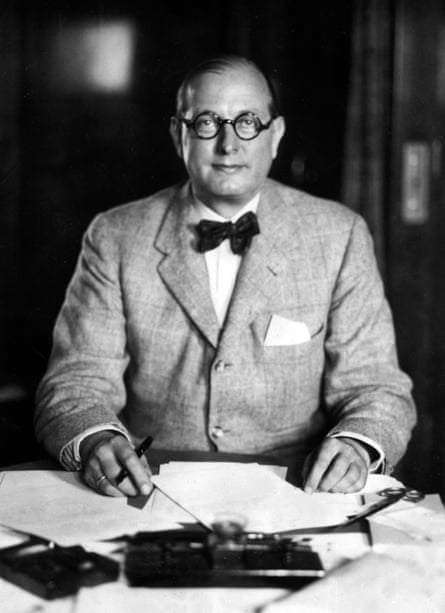
He began by paying tribute to Einstein for all that he had achieved for science and for humanity. He praised the United States for showing him the same welcome it had extended to other luminaries of German scholarship. Then, in what sounded like a coded reproach to his own government, he said it was the mark of all great nations that they were open to new ideas and refused to judge an idea by the nation or group from which it came.
Finally, he turned to the guest of honour. “This company does not honour you, Professor Einstein. On the contrary, you honour this company, and I might say, every company of which you choose to make yourself a part.”
The ovation was long and sustained. Few present were surprised to read an account of what they had witnessed published on the front page of the next day’s New York Times. Otto himself was similarly unsurprised by the report that appeared in Berlin a few days later in the house organ of the Nazi party. It noted that an official representative of the German nation had insulted the Third Reich in a room full of Jews. It did not take long for the order to arrive, demanding he return to Germany for “consultations”. Among those doing the consulting would be Germany’s new chancellor: Otto would have to explain himself to Adolf Hitler.
Elisabeth von Thadden, headteacher to the daughters of the German elite, had initially approached nazism with an open mind. But the reality of national socialism soon became unmistakable. First, some of the women Elisabeth most admired lost their offices and had to close their institutions because of their Jewish origins.
Next, Elisabeth saw what the Third Reich had in mind for Christianity, as it sought to create a new “German church” that would be an arm of the all-powerful Nazi state and in which Adolf Hitler would outrank Jesus Christ. By November 1934, she had thrown in her lot with the dissidents of the Confessing Church.
Before long, she found herself navigating between two mutually repelling poles. On the one hand, she wanted to stay true to her own revulsion at the direction the country was taking. On the other, she needed to keep open the school she had founded in Wieblingen just a few years earlier, which had fast built a reputation among some of Germany’s leading families.
So she picked her battles carefully, tolerating much that she found intolerable and finding artful compromises on the rest. She allowed her pupils to join the girls’ version of the Hitler Youth – the Bund Deutscher Mädel, the League of German Girls – but she ensured it was staffed by the school’s own teachers rather than outside Nazi officials or activists. That way, she hoped, she could manage, and restrict, the degree of indoctrination that would occur under her roof.
Elisabeth would go through whatever motions the authorities demanded of her – say, displaying the Nazi party programme at the school entrance – just to keep the place functioning. Without a school, she reasoned, she could not inculcate the next generation with the values of social responsibility and Christian piety she cherished. More concretely, without a school she could not take in the girls who needed a safe haven – a need that would only become more urgent.
For, quietly, Elisabeth had been admitting pupils of “non-Aryan” origin. Pupils noticed how new girls might suddenly arrive in the middle of the school year, only to disappear again soon afterwards. The obvious explanation was that they were holding out in Wieblingen while their families acquired the papers they needed to flee the country.
She discreetly dropped the word “Evangelical” from the school’s name in 1936, as state hostility to denominational schools and indeed to Christianity itself intensified, with the party increasingly drawn in its propaganda to what it imagined was an earlier, pagan Germany. But inside the bounds of the renamed Rural Education Home for Girls, neither staff nor pupils were required to give each other the so-called German greeting: there were no Hitler salutes.
She had found a line she could walk that would keep her just the right side of the Reich, thereby allowing her to do what she could to defy it. The line held, until the day she slipped up. Of all things, it was a passage from her cherished Bible that was to prove her undoing.
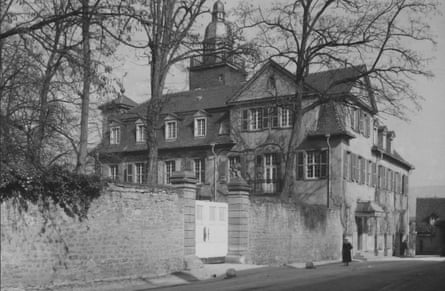
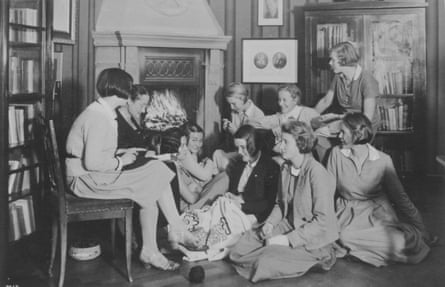
It happened at a school ceremony to celebrate the German victory over France in June 1940. Elisabeth read out a psalm. What she did not know was that one of her pupils took careful note of her choice of text, not because she was a particularly diligent student of the Bible – but because she was a spy.
The source of the trouble was that high-wire act Elisabeth had been performing between her principles and the pragmatic need to stay on civil terms with the new rulers of Germany. At the celebrations for her 50th birthday that summer, you would have found among her guests both a Jew and a Nazi. The Jew had been born Margot Kohn, though she was now a convert to Catholicism. But also present was Baroness Martha Reichlin von Meldegg, who led the Nazi Women’s Association in the area. It must have seemed a prudent act of local diplomacy, keeping one of the town’s ardent national socialists on side.
The trouble was, the baroness’s ardour extended to encouraging her 13-year-old daughter to act as a secret agent within the school, monitoring all that she saw and heard, and reporting any deviation from Nazi orthodoxy to her mother. Which, in turn, her mother then reported to the authorities as “deficiencies of conviction”. An official letter arrived soon afterwards.
It had come to the attention of the regime that Fräulein von Thadden had read from the Old Testament at a ceremony devoted to the honour of the German people. She had sullied a national day with the taint of Jewish scripture. The Gestapo sent in an inspector.
He discovered myriad deviations. The students did not issue the proper greeting of “Heil Hitler!”. Indeed, at that victory ceremony where a psalm of Hebraic origin had been uttered, not a word had been said about the Führer. The leader was literally missing: there was no portrait of him on display.
Eventually, the decision was made. Elisabeth’s state permit was revoked and the institution to which she had devoted herself was closed down, on the grounds that it “did not offer a sufficient guarantee of a national socialist education for young people”. In its place came a new, renamed secondary school. The pupils and most of the staff were allowed to stay on, but Elisabeth was out.
And so it was that in September 1943, now lacking both a job and a mission, Elisabeth von Thadden invited some friends for tea – Maria von Maltzan and Otto Kiep among them. Also on the guest list was a one-time mandarin from the finance ministry, a doctor, a former model, a high-ranking diplomat and Hanna Solf, an ambassador’s widow famous for the salon of anti-Nazi dissenters that would gather at her home. It promised to be a delightful afternoon, a meeting of allied souls where they might share information, plans for a post‑Nazi future and, perhaps most important, the comforting knowledge that they were not alone.
Except what none of them knew that day was that, sitting at the table, sipping tea and eating cake along with them, was someone they believed to be one of their own – but who was, in fact, about to betray them all to the Gestapo. That act of deception would end in pursuit by one of the Nazis’ cruellest men, in torture and a show trial, and, ultimately, the guillotine and the hangman’s rope. Its convulsions would touch Adolf Hitler himself.
It is a tale of bravery and treachery, of resistance and its price. And yet it is not wholly in the past. The courage of those rebels, and what it tells us about defiance in the face of tyranny – that lives on, even now.

 3 months ago
61
3 months ago
61








